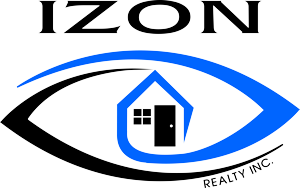Explore Our Fort St. John
Rental Properties
Browse our selection of unfurnished & furnished properties available for rent in Fort St. John, British Columbia. It’s quick and easy to apply online! Simply view the details of the property you’re interested in, and click “Apply”.
Rental / Tenant FAQs
What is the application process?
If a rental interests you please fill out an Inquiry Form found with each listing.
Will I sign a tenancy agreement?
The tenant signs a lease agreement (RTB1), move-in inspection (RTB27) and an addendum.
What are the different types of tenancy agreements?
Please pay close attention to the first page of your tenancy agreement that is titled “Rental Period and Terms of Tenancy”:
Fixed Term to Month-to-Month: Your fixed term end date is the date at which you are expected to reside in the property. You are liable for the rent in the property until this end date. After the fixed term end date the tenancy will revert to month-to-month. Once the tenancy reverts to month-to-month at least one month’s notice is required if you are vacating the property. The tenancy applies to the property, therefore, if the property sells during your tenancy, you do not have to move before the end of the fixed term. If the tenancy is in a month-to-month situation you can be given two month’s notice and one month free rent if the landlord or purchaser wishes to occupy the property.
Fixed Term Must Vacate: This tenancy means you must vacate at the end of the fixed term date. The property owner or a close family member will be moving into the property.
Month-to-Month: The tenancy is on a month-to-month basis and there is no fixed term end date. You are expected to give one month’s notice that you will be vacating. If the landlord or a buyer wishes to move-in you will be given two month’s notice and one month’s free rent.
Izon Realty advises you to obtain independent legal advice to review the tenancy documents.
How much are security and pet deposits?
As per the Residential Tenancy Act a security deposit can be one-half month’s rent. A pet deposit, if pets are allowed, is also one-half month’s rent
What is a “Conditional Move-In Inspection Report”?
The report is completed with your property manager at the start of tenancy. We record all of the pre-existing damage before you move into the property, so you are not penalized for that damage at the end of tenancy. Your property manager will email you the inspection report, for your records.
How often can a landlord increase my rent?
A landlord can only increase rent one time per year. The Government of British Columbia issues the allowable percentage amount. You must be given three whole month’s notice of the rental increase.
Do you perform inspections throughout my tenancy?
Yes, Izon Realty will inspect as often as directed by the owner based on specific concerns or requirements - and a minimum of once per year.
What if there is a repair needed at my rental?
Please visit the “Tenant Portal” link on this website for complete access to the tenant tools, including repair requests.
Can I sublet the rental unit?
You must have your landlord’s permission to sublet. Subletting is permitted with owner approval.
What are the expectations when I move-out?
The tenant must provide Izon with 30 days written notice to vacate.
Before the inspection, please ensure:
All personal belonging, pet waste and trash must be removed from the property. The property must be professionally cleaned (or equivalent) according to the Izon cleaning check list. Any damaged caused by the tenant must be repaired by an approved professional before the end of tenancy and the move-out inspection.
The property must be in ‘rent-ready’ condition for the move-out inspection. Delays caused by the tenant’s failure to have the property in acceptable condition will result in added expenses against the tenant’s security deposit.








